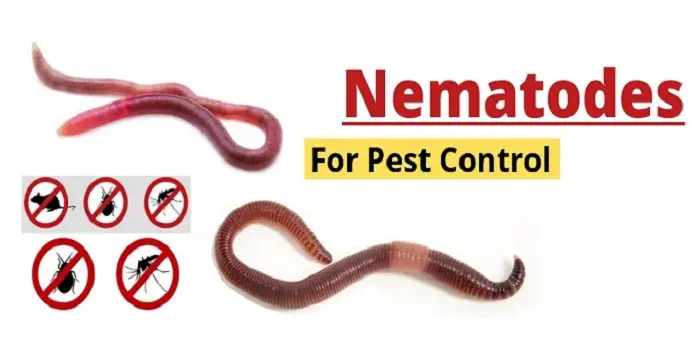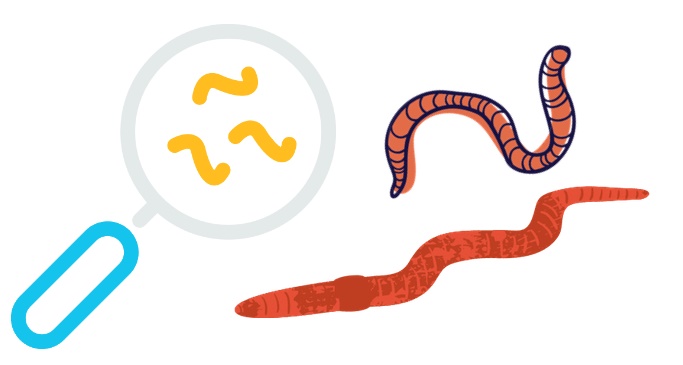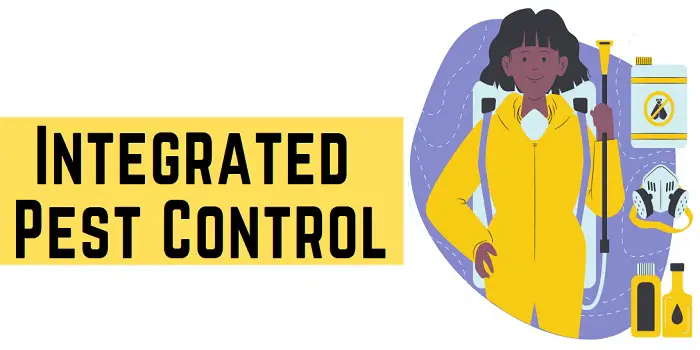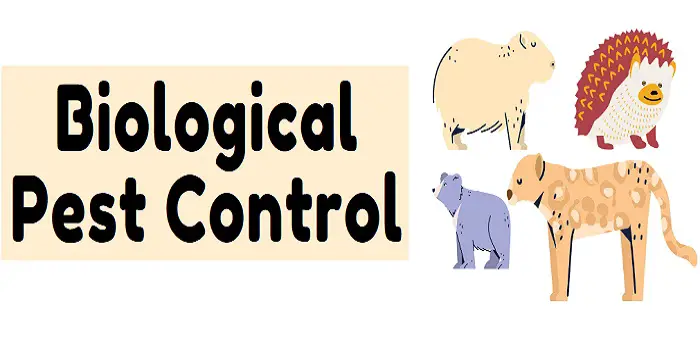
No one would like their beautiful home to be infested with pests.
If you don’t address the problem at the initial stage itself, you would be forced to pay a lot for repairs as they can bring grave damage to the building.
Additionally, taking the right action at the right time helps you to get rid of the pest problems in a much easier way.
There are various methods available for treating an infestation, and one such method is the use of beneficial nematodes.
This is a 100% effective chemical-free organic method, so there is no need to worry about your family’s safety while using them for pest control.
Before we get into details on how to use these nematodes for pest control, let’s understand what they exactly are.
What are Nematodes?
Nematodes are roundworms of microscopic size, although few of them can grow up to a few centimeters in size.
They are naturally present in various environments all over the world, and using them is easy as well as beneficial.
Using beneficial nematodes is your home’s go-to natural pest control method.
What makes them beneficial is the gut bacterium present in them. They find their way into the pests through the anus, body, or mouth.
Once they enter the hosts, the gut bacterium will be released, making the blood toxic.
This will eventually lead to the death of pests in a matter of time.
Once the pests are dead, they will be fully consumed by nematodes which will later move on to attack the next target.
During the process, the nematodes also increase in numbers and grow stronger, resulting in the quick death of bugs.
Once the nematodes complete their assigned task of killing the pests naturally, they eventually die and get decompose as they are bio-degradable.
Why are Nematodes Beneficial?
Never underestimate the power of these small nematodes, as they can deliver many benefits.
First of all, the use of nematodes is a natural method, and it is safe for your family, pets, and plants as there is no involvement of chemicals used in fumigation.
A few other advantages of using beneficial nematodes are:
1- Fast in killing
Usually, they slay down the harmful bugs within 24 hours, and in rare cases, they take not more than 48 hours.
2- Group Effect
Even a small group of nematodes are enough to kill an army of insects (like termites and other bugs).
Because they multiply their population exponentially by feeding on insects, they can even attack other pests very easily that can be present in your yard, garden soil, or inside your home.
3- Kills other pests
The best thing is nematodes don’t restrict themselves to killing just one insect, but they feed on them and multiply themselves before entering inside other insects.
In other words, nematodes are not only effective in killing the insects like termites, fire ants, fungus gnats, fleas, and ticks, but they can kill other household and garden pests like slugs, spiders, lawn grubs, Japanese beetles, etc.

Types of Nematodes for Different Pests
The two most common nematode families that can be used for pest control include Steinernematidae and Heterorhabditidae.
Specifically, the most commonly used beneficial nematodes are Steinernema carpocapsae, S. feltiae, S. glaseri, Heterorhabditisheliothidis, and H bacteriophora.
Some of the best nematodes that can be used for treating different pest species include…
| Nematodes | Effective Against |
|---|---|
| Steinernema Carpocapsae (SC) | Flea larvae, termites, ants, and caterpillars |
| Steinernema feltiae | Fungus gnat |
| Steinernema glaseri | Japanese beetle grubs |
| Phasmarhabditis hermaphrodita | Slugs and snails |
For both residential as well as commercial spaces, S. carpocapsae is found to be the most effective nematode application for lawns, garden soil, and under trees.
How to Apply Beneficial Nematodes for Pest Control?
One of the most important factors that makes beneficial nematodes so popular is their simplicity to use in your lawn or backyard garden.
Due to their microscopic nature, they have a very limited range of movement.
This means that once applied, most of them are not able to move to other areas and will stay at a place where you have actually put them.
Even though there are various ways of using nematodes, the easiest method is just mixing them in water and spraying them on the infected area using a spray bottle or hose-end sprayer.
- Take a bucket full of water and put the beneficial nematodes into it.
- Stir the mixture continuously for a few minutes so that the nematodes get spread evenly in the water.
- Let it settle down before transferring it to a spray bottle.
- Make a list of all the places where you have seen the insects, such as your garden, home, and yard.
- Spray on those areas, and make sure you cover all of them.
Since your garden or home is a new habitat for the nematodes, they may find it hard to accommodate in the initial stages.
To overcome this, you can re-spray on the same areas a few times a day till they form a good base to attack the pests and wipe them out completely.
Be sure that beneficial nematodes may need time to parasitize fully and kill their host.
And for this reason, it may take around two weeks after application for you to see any noticeable changes in the pest populations.
Also, nematodes will kill the pests completely from the inside out before their move on to their next host.
This means you will hardly see any bodies of dead insects or pests around.
But the pest population will gradually decrease as the nematodes continue to work and kill them at their different life stages.
The above points are general guidelines to be followed, but you need to follow the packaging, handling, and storage instructions as well to get the best-desired results.
When Should They Be Applied?
Beneficial nematodes remain effective up to 95°F.
You should generally be applying the beneficial nematodes in the morning or evening because, during this time, the soil temperatures are optimum (42°F – 95°F).
Bright sun and UV rays can also harm nematodes, so if you can apply them early in the morning, it’s the best time.
Also, remember that the season or month you should be applying the nematodes is pest-specific, which means it will depend on what pests you want to control and their life cycle.
For most effective results, follow-up of a second application (or even third) is always recommended which should be done around 1-2 weeks after the first nematode application.
Can You Store Them for Future Use?
When it comes to the storage of nematodes, store them in a refrigerator and don’t put them in a freezer.
For the stored nematodes to function effectively, ensure you use them within two weeks, no longer than a month.
Never leave them in a bucket or spray bottle for a long time.
If you plan to apply the nematodes, don’t use any fertilizers, especially those high in nitrogen content in the garden or yard.
Stop using them at least two weeks before the date of application of nematodes.
If you use fertilizers, it will affect the nematodes definitely, and it will not serve the intended purpose.
So, use the fertilizers only after the insects and other pests are killed completely.

Tips for Buying the Best Beneficial Nematodes for Organic Pest Control?
Like other living organisms, there are different species of nematodes available.
Each one is different from the other in size, shape, and other characteristics.
So, it is wise to choose the right nematode that aids in killing or controlling the specific insects in your home.
For instance, if you want to eradicate fire ant colonies, get the nematodes specifically meant for killing ants.
On the off chance, if you buy nematodes that are specialized in killing other pests in your household, it will still work, but the results may not be that good.
When buying nematodes online, you can now get the nematodes delivered to your home directly.
But keep in mind sometimes, the nematodes don’t last very long in storage conditions.
And chances are they may die soon or can arrive dead at your home in storage.
So, it is good to buy them from a reliable supplier as they exercise good caution over storage facilities, and as a result, you will get the quality nematodes safely for your intended purpose.
Other Related Questions:
Are nematodes parasites?
The answer to this is yes and no because not all nematodes are parasitic.
Especially the ones that are used for controlling flea infestation are a type of insect parasite.
But remember, just because they are categorized as parasites and are harmful to their host doesn’t mean they are harmful to the world around them.
You can use these beneficial nematodes safely without worrying about harming your pets, other larger animals, mammals, birds, reptiles, aquatic life, or amphibians.
Will nematodes live through winters?
Most nematodes are like insects.
This means they will become dormant with the weather getting cold.
The survivors, although very few, can sometimes provide insect control, especially if the infestation is not very serious.
Make sure you follow up with the nematode treatment once you see the insects coming back the following year.
Can you grow your own beneficial nematodes?
Yes, growing or rearing nematodes is a great way to control pests like a fungus gnat, shore fly, and other garden pests in your greenhouse.
The good thing is numerous species of entomopathogenic nematodes can be reared with wax worms if you are looking for a cheaper DIY alternative to commercially available nematodes.
I found a useful guide here that can help you know how to produce beneficial nematodes at home as a DIYer.
The Conclusion
Applying the nematodes in the infested area is easy.
It works great even if you are a DIYer and do it by yourself. This means you do not need any help from a professional.
The need for hiring an expert only arises when you think the infestation is huge and out of your control.
Professionals will employ other pest removal techniques along with the nematodes for the best results.
They will also make sure that the techniques they employ will not hinder the nematodes or their performance in any way.
Share the post "How to Use Beneficial Nematodes for Organic Pest Control?"

Welcome to ProShieldPest.com. I am Tina Jones. I have been working as a pest removal professional in Winslow, Arizona lately. At present, I love to spend my time with my family as a retiree.
Here I share all my knowledge and experiences to help people understand better how they can stop pests at their homes without actually killing them. Hopefully, the information you will find here will help in safeguarding your home! You can check more about me here.




